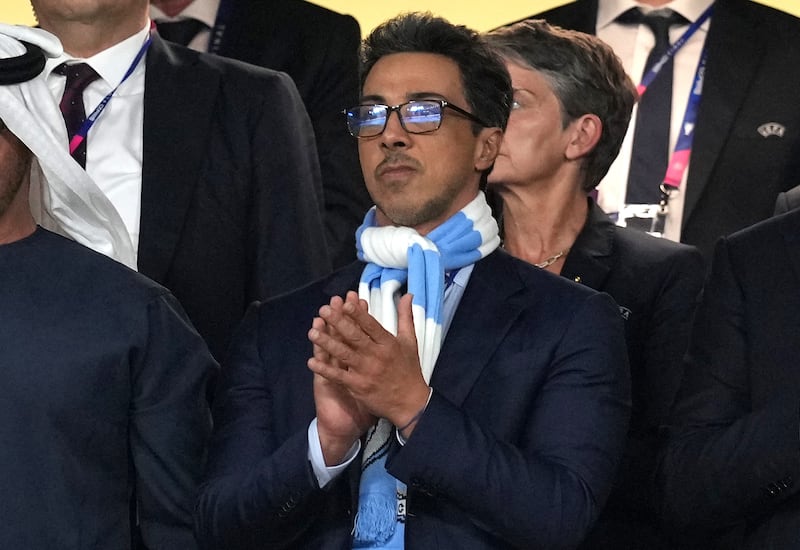The proposed takeover of the Telegraph newspaper group by an Abu Dhabi-backed fund has collapsed after the Government intervened in the deal.
RedBird IMI was due to buy The Telegraph and sister publication The Spectator but said on Tuesday the deal was “no longer feasible”.
The publications will now go up for sale for a second time to find new owners.
Here the PA news agency looks at why the takeover deal came under fire and what will happen next.
– What was the proposed takeover?
Last year, previous Telegraph owners the Barclay family were forced to put the media group up for sale in order to repay debts to lenders at Lloyds Bank.
After a lengthy process, receivers for Telegraph Media Group agreed to sell it to investment fund RedBird IMI.
The deal saw RedBird IMI pay roughly £600 million to purchase the business and agree to take on £600 million of related debts.

– What is RedBird IMI?
RedBird IMI is a gulf state-backed media investment fund.
The fund, which was founded in 2022, is majority owned by International Media Investments – a firm run by Sheikh Mansour bin Zayed Al Nahyan, vice president of the United Arab Emirates (UAE) and owner of Manchester City Football Club.
It is led by former CNN boss Jeff Zucker and also part-owned by US investment firm RedBird Capital.
– Why was the deal contentious?
The takeover has faced criticism due to the involvement of the UAE in the fund.
There are numerous other UAE-backed investments across the UK – such as Manchester City Football Club and Vodafone – but this has faced particularly scrutiny over its potential influence over a British media title and freedom of speech concerns.
Early on in the process, a number of politicians including former foreign secretary Lord Hague said the move “should be prevented” to avoid the publications’ editorial independence being impacted.
– How did the Government respond?
Culture Secretary Lucy Frazer first intervened in the process in November last year, asking the media watchdog Ofcom and the Competition and Markets Authority (CMA) to assess the deal, triggering a Public Interest Intervention Notice (PIIN).
It held the takeover from taking place until any concerns could be adequately addressed.

However, Ofcom raised concerns IMI could influence “the accurate presentation of news and free expression of opinion in the Daily Telegraph and the Sunday Telegraph newspapers” if a takeover went ahead.
Alongside this, the Government also brought forward legislation to ban foreign powers from owning UK newspapers and magazines in the face of cross-party pressure.
Amid the threat of defeat in the House of Lords, the Government proposed an amendment to the Digital Markets, Competition and Consumers Bill that would block such deals.
– What is RedBird IMI doing now?
The fund has confirmed that the legislation means there is no way it can proceed with its proposed takeover.
As a result, it will put the Telegraph Media Group back on the market for a sale in order to secure as much money back as possible.
– How will the sale take place?
RedBird IMI is reportedly working with advisers at City firm Robey Warshaw – which counts former chancellor and Evening Standard editor George Osborne as a partner – to consider sale options.
The fund has stressed that the Telegraph and Spectator are “highly valuable” assets and expected to garner significant interest.
It is understood they will consider both separate offers for the Telegraph and Spectator, and for them together as a package.
It is not known how long the process will take.
– Will the Government be involved in the process?
No, it has said it will allow the sales process to take place independently.
However, Ms Frazer said she will monitor the process in case further regulatory action is needed.

– Who wants to buy the Telegraph and Spectator?
It is understood that a raft of parties have already informally registered their interest in buying the publications.
But currently there are no preferred suitors to snap them up.
GB News investor Paul Marshall is among those to have reportedly shown an interest in buying the titles.
Another potential frontrunner is Daily Mail proprietor Lord Rothermere.
Meanwhile, Rupert Murdoch’s News UK is also reportedly interested in purchasing The Spectator, but it is unlikely to be in the frame to buy The Telegraph titles due to competition concerns through his ownership of The Times.
– Who is running the publications in the meantime?
At the start of the original sale process, independent directors were appointed to run the Telegraph and Spectator.
They remain in place and will do until the fresh sale process is completed.
The Barclay family are also still shareholders in the companies but are also not involved in their day-to-day operations.









